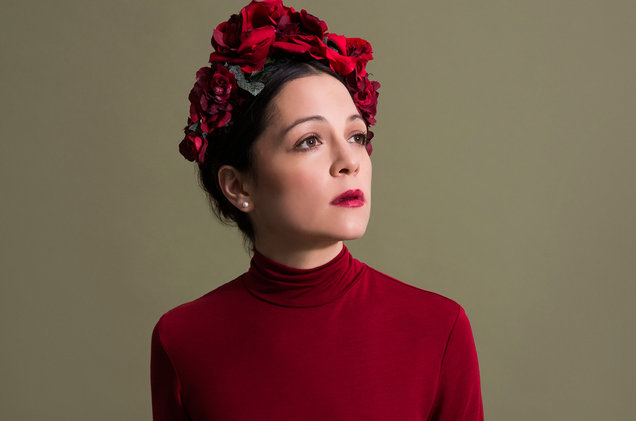Mexican singer/songwriter Natalia Lafourcade recorded Musas “on a whim,” during vacations in Brazil. “That always happens. I start working while on vacation,” Lafourcade tells Billboard ahead of the release of the new instrumental-driven record due May 5.
“It wasn’t in my plans to release a new album, but I had this desire to record with Los Macorinos and just make music for myself. But now here we are, releasing a new album.”
Musas, an emotional and graceful homage to Latin American music and songwriters with original songs and covers of classics like Violeta Parra’s “Qué he sacado con quererte,” follows the artist’s Grammy and Latin Grammy-winning LP Hasta La Raíz (2015) in collaboration with Los Macorinos (Juan Carlos Allende y Miguel Peña), an acoustic guitar duo who accompanied Mexican legend and icon Chavela Vargas in various musical projects.
In an interview with Billboard, Lafourcade talks her new “life-changing” album and why she’s taken it upon herself to spotlight and celebrate Latin American folk music.
You recorded Musas in a beautiful studio in Mexico that seemed to be in the middle of a forest surrounded by amazing artists. How was that like?
It was magical! I wanted an album that represented real music, bohemians, instruments made out of wood. The music we made there is something we can’t explain, it could only be felt.
You’ve said Chavela Vargas has been a great inspiration, so how was it like to be able to collaborate Los Macorinos?
Working with them has been one of the most beautiful experiences that I have lived. It reminded me the importance of humanity in a project. It’s a project full of humanity, that’s the word I would use if I had to describe the album. Recording with them made me understand what it meant to be patient, understand what it meant to be peaceful and to work slowly. Los Macorinos are much older than I am so when you surround yourself with older people you realize they lived what we’re living now. They live in a moment of peace because they don’t have to prove anything anymore. That for me was a shock because I went into the studio wanting to work in full speed but it was beautiful to be able to just breathe. I learned that life is about living and enjoying and all of that made me connect to music in whole other level.
Did you think you’d be recording an album soon after Hasta La Raíz?
It wasn’t in my plans to release a new album but I had this desire to record with Los Macorinos and just make music for myself. I was in Brazil like a year ago on vacation and I started thinking about a new musical project. During that trip is when I decided it was time to record with Los Macorinos because I wanted to make music that would bring me close to home. I didn’t want to tell anyone about the project because I wanted to record just for pleasure and here we are.
Hasta La Raíz healed a broken heart, but what does an album like Musas do for your spirit?
So many things. First of all, I was able to re-connect with myself and connect to songs in a way I hadn’t been able to before. It changed my life. It changed the life of Los Macorinos and everyone else who was involved in the project. The energy and force from this album is very peculiar, one I hadn’t been able to achieve with any other musician from my age or doing it by myself and that’s because of Los Macorinos.


